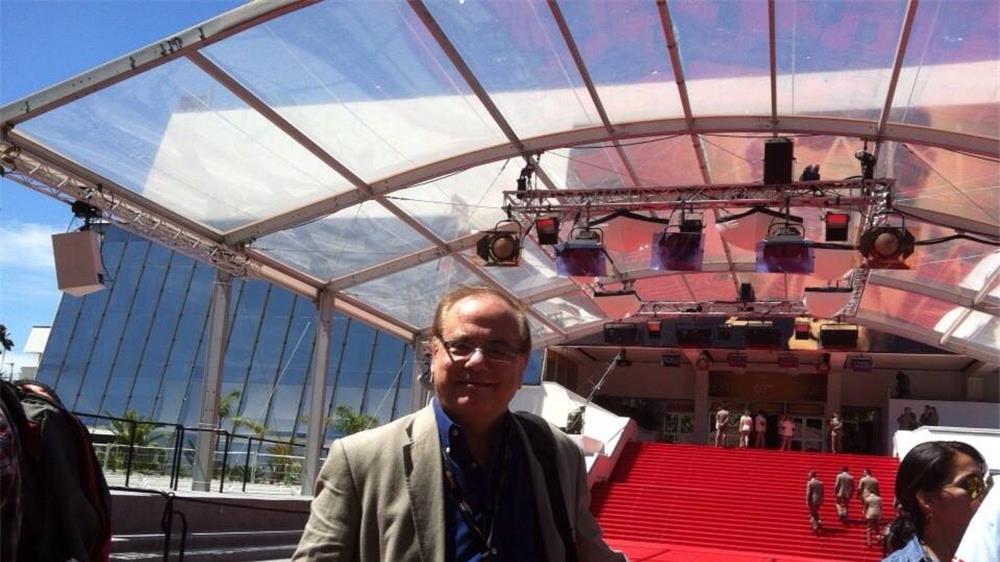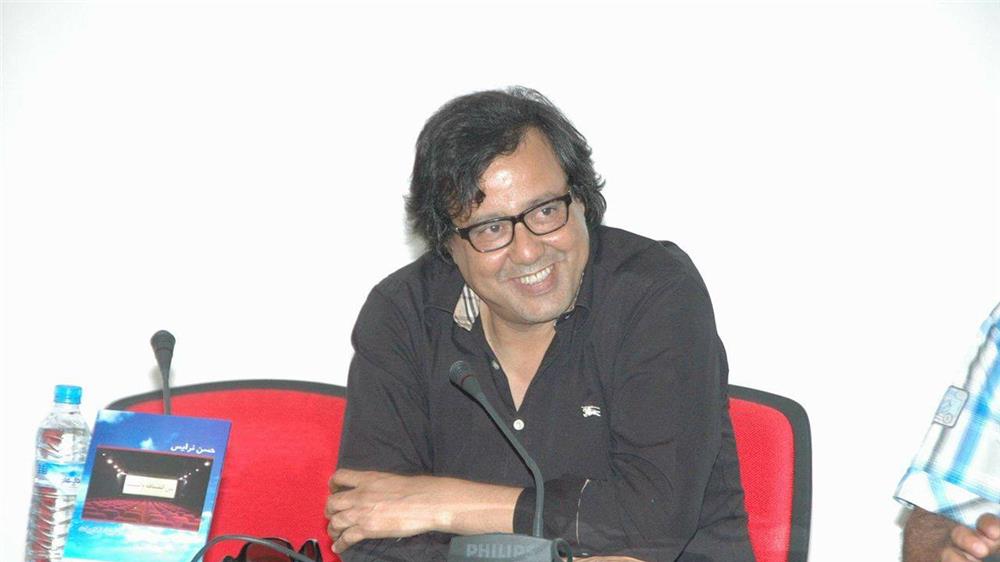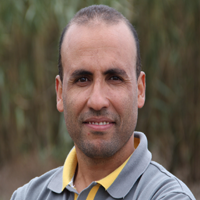يُقَسِّمُ أساتذة الإعلام المواد الصحفية حسب جنسها، ويضعون قواعد تحريرها دون اعتبار لموضوعها، سواء أكانت فنية، أم رياضية، أم ثقافية، أم سياسية، أم غير ذلك. لكن بالبحث في الخصوصيات الممكنة لكل مجال على حدة، نجد أن ثمة مساحات يستقل بها كل حقل دون سواه؛ فالأخبار السياسية مثلا، لها أَفْضِيَتُها ومناسباتها ومؤسساتها، إضافة إلى معجمها الدلالي الخاص بها، ناهيك عن وتيرتها المتسارعة مقارنة بباقي الميادين الأخرى. والشيء نفسه بالنسبة للمجال الفني، فهو أكثر المواضيع إثارة للأسئلة المتعلقة بطبيعة الكتابة حوله، وبصيغة تتبع أحداثه، وكذا كيفية الوصول إلى مصادره، فضلا عن الخلفية الفكرية والمهنية للمشتغلين فيه، مما ينعكس على الشكل الذي تُقَدَّمُ به المواد الصحفية المنجزة حول الإنتاجات الفنية عموما.
وعلى هذا الأساس، اخترت في هذه التقرير إمكانية صياغة تصور معين لتغطية التظاهرات والملتقيات السينمائية، من خلال مناقشة المحددات النظرية لتحرير تقرير حول خبر سينمائي، وما يخص تظاهرات ومهرجانات الفن السابع. وقد عملت على إدراج وجهتَي نظر في الموضوع، الأولى لـ"أمير العمري"، الكاتب الصحفي والناقد السينمائي "أمير العمري" من مصر، والثانية للكاتب والباحث في الشأن السينمائي والأدبي الأستاذ "حسن نرايس" من المغرب.
وعلى ضوء ما سبق، تطفو أسئلة جوهرية من قبيل: ما الفرق بين التغطية الصحفية والكتابة النقدية؟ وهل هناك خصوصية معينة في التحرير والنشر عن حدث سينمائي مقارنة بباقي الفنون؟ وماذا يحتاج الصحفي لكي ينجح في ذلك؟ وهل هناك ملاحظات عامة إزاء المتابعات التي تقوم بها الصحافة العربية في مواكبتها للتظاهرات السينمائية المحلية والعالمية؟
بين النقد والمتابعة
تدين المقالة في ظهورها للقصة، إذ أخذت منها مميزاتها الشكلية، كالتصميم والبناء مثلا، وكذا السمات المرتبطة بالأسلوب واللغة. لهذا فإن التقارب بين الأدب والأجناس الصحفية ليس شيئا جديدا أو غريبا، وهو ما أكده حسن نرايس، الكاتب الصحفي والناقد السينمائي ومُؤَلِّف كتاب "بين الصحافة والسينما"، حيث اختار الأسلوب السردي والحكائي بدل الصيغة المقالية التركيبية في تأليف كتابه ذي الطابع التوثيقي، إذ يقول معللا نهجه هذا "إن إخراج مؤلفي كان نابعا من ذات صحفية مهتمة بالأدب أكثر من النقد الفني، لهذا فالكتاب ليس سيرة ذاتية بالمعنى الأدبي الدقيق، بل تدوين وتوثيق الأجواء التي تمر فيها المهرجانات السينمائية، والعلاقات التي كانت بين المخرجين والفنانين والمسؤولين ولجان التحكيم.."، وبناء عليه "لابد من إخراج هذا المؤلف من أجل حفظ ذاكرة المهرجانات السينمائية بالمغرب، سواء تلك التي ساهم معدوها في نجاحها، أو التي مرت ولم تترك أثرا، أو الثالثة التي ما زالت تناضل من أجل الحياة". يضيف نِرَايـس.
إن من يقرأ للوهلة الأولى، عنوان "الصحافة والسينما"، يظن أنه عتبة لمجموعة من المقالات والحوارات بين دفتي مُؤَلَّف، وذلك كما جرت عادة أغلب الصحفيين المتابعين للشأن السينمائي، والمرافقين للتحولات التي يشهدها الفن السابع في سياق تاريخي معين، لكن صاحبَه فضل السرد بدل التقرير. وهو معطى يفسر لماذا يسلك أغلب الصحفيين الذين يكتبون عن قضايا السينما مسار قراءة الأفلام بعد ذلك، أو يزاوجون بينهما، نظرا لحاجة العملية النقدية للمادة الخام (التيمة)، وهي الخبر بالدرجة الأولى. فما أوجه اللقاء والافتراق بين المقالة الإخبارية والنص النقدي؟
يَعْتَبِر أمير العمري أن "التغطية الصحفية تكون عادة على شكل تقرير صحفي يستند على آراء المتابعين حول حدث أو ظاهرة، بغية قراءة الأبعاد العامة للحدث". أما النقد، فهو "رؤية خاصة بالناقد؛ تكون موازية للعمل الفني، ونظرة تتعمق في تفاصيله وتتوقف عند مناطق معينة لإضاءتها، دون أن تفرض شيئا على القارئ/المشاهد".
وجوابا من "العمري" عن سؤالنا المتعلق بأوجه العلاقة بين الإخبار عن حدث سينمائي وقراءة نقدية لعمل ما، فإنه يرى أن "الصحفي غير الناقد؛ فهذا الأخير يتابع الأفلام جيدا، ويتناولها بالفحص والتحليل، كما يتوقف أمام الاختيارات والاتجاهات الجمالية الجديدة". أما الصحفي، فـ"يركز أكثر على ما يثار حول الأفلام من أسئلة أو غير ذلك، وينقل الأصداء التي تتردد في المهرجان وتداعياته، كما يمكن أن يجري مقابلات حول بعض الظواهر، لكنها لا تكون عادة مقابلات متخصصة وتفصيلية، بل تُلِمُّ بالحدث/الفيلم من الزاوية الصحفية، أي بجعل المادة مقبولة للجمهور العام الذي له ثقافة سينمائية محدودة".

الصحفي والمهرجانات السينمائية
لا يختلف كثير من الفاعلين في الحقل السينمائي العربي على نعت الكتابات والمتابعات لأعمال الشاشة الكبرى بالمحاباة الشخصية لـ"نجوم" السينما والسعي لإرضائهم وعدم "إحراجهم" أمام جمهورهم ومحبيهم، عبر تجنب طرح الأسئلة التي تُـبَـئِّـرُ الاختيارات الجمالية للمخرجين، وأداء الممثلين أمام الكاميرا.
ويعلل الكاتب الصحفي والناقد السينمائي المصري "أمير العمري" هذا الأمر؛ بأمر شخصي/نفسي مرتبط بالجانب الثقافي، إذ "يركز الصحفي العربي على حضور بني جنسه، ويهمل بالمقابل، التجارب الهامة التي تأتي من العالم، وكأنه لا يريد أن يرى سوى نفسه"، وهذا لا يطور السينما ولا الصحافة، إذ "لابد من الاهتمام بالذات في علاقتها بالعالم واطلاع الجمهور على ذلك". يضيف العمري.
ويزداد الأمر استفحالا، حسب العمري دائما، عندما "ينهج المبعوث والمراسل الصحفي العربي المبالغة في إطلاق الصفات والألقاب، واختلاق الأكاذيب، عندما يَنْسِبُ الحصولَ على جوائز غير حقيقية أو مبالغا في قيمتها إلى أفلام عربية، إرضاءً لرؤساء التحرير والقائمين على شؤون إدارة الصحف والمجلات، تبريرا لوجود المراسلين في المهرجانات، ولو خالفت تقاريرهم الحقيقة. دون نسيان آفة السعي وراء النجوم وإهمال جهد المبدعين السينمائيين الأساسيين، وفي مقدمتهم المخرجون، وهم مركز العمل السينمائي".
وارتباطا بتوقيعات الأخبار التي تُنْشَرُ عن السينما بالمغرب، يعكس رأي "حسن نرايس" موقفا سلبيا مما يصدر عن الصحافة المغربية التي تغطي الشأن السينمائي، إذ "يعمد مجموعة من الـدخلاء على المجـال الصحفي إلى استغلال التظاهرات والملتقيات السينمائية للتقرب من السلطة والمؤسسات الرسمية، عبر نشر مواد مكررة ومملة تجيب عن أسئلة ذات طابع شخصي للفاعلين السينمائيين، دون أن تسائل العمل الإبداعي في جوهره"، إضافة إلى الظلم والتعسف الذي يعرفه هذا الفن من طرف الفاعلين السياسيين، شأنه شأن باقي الفنون الأخرى. وهو ما ينعكس على لغة الكتابة الصحفية في السياق المذكور، حيث هيمنة الارتسامات والانطباعات التي لا تستند لمرجعيات فكرية وثـقافية محددة، و"أحيانا كثيرة تكون فيها المجاملة، التي يغلب عليها الذاتية أكثر من الموضوعية". وفـق تعبـيـر نرايـس.

الــرهـان
وعليه، يبقى رهان "الفصل" الوظيفي، ومن ثَـمَّ العملي، بين دَوْرَي كل من الصحفي والناقد؛ هو السؤال الأهم الذي يجب أن يجيب عنه مدراء ورؤساء تحرير الجرائد والمجلات، ومسؤولو القطاعات المهنية وأعضاء مجالس الصحافة. وبالتالي الحسم نظريا في شروط تغطية الحدث السينمائي، لأن ذلك سيحدد طبيعة العلاقة التي تجمع بين الصحفي والفاعل في المجال السينمائي، فالأول دوره هو نشر الخبر وتلبية انتظارات القارئ/المتلقي من جهة، والالتزام المهني مع المؤسسة الصحفية من جهة ثانية. والثاني غايته صيانة المجال السينمائي من مظاهر الدعاية السياسية والحسابات الشخصية الضيقة. لهذا، أرى أن الهاجس الذي يجب أن يشغل محترف مهنة المتاعب عامة، هو مواكبة التحولات التي همت طريقة صياغة وتحرير النصوص والمقالات الإخبارية، وابتكار تقنيات جديدة في الكتابة تواكب الطفرة التكنولوجية والمعلوماتية، وليس إرضاء مصادره الصحفية أو "أصدقائه" رؤساء المهرجانات السينمائية والفنانين والمنتجين السينمائيين وغيرهم، بحسب نرايس.
وفي السياق نفسه، تطرح قضية البلاغات والبيانات الصحفية «Communiquer de presse»التي تصدرها شركات الإنتاج، أو وسطاء التواصل والإعلان الذين يشتغلون بهدف الترويج والدعاية، مسألة دقة و"مصداقية" المعطيات التي ترسلها لوكالات الأنباء والجرائد والمجلات وكل وسائل الإعلام بخصوص الإنتاجات والأحداث السينمائية وقيمتها المالية والفنية والجمالية، مقارنة بمستوى العمل سينمائيا على أرض الواقع. لكن، هل في ذلك أي تعارض مع وظيفتها الأساسية، وهي الترويج والإشهار؟ وما المطلوب بالمقابل، من الصحفي الذي يتلقى ذلك البلاغ أو البيان؟ هل ينشره كما هو، أم يعيد صياغته؟ مع العلم أن أغلب تلك الوثائق تكون قبل العرض ما قبل الأول للفيلم. وكيف يمكنه (الصحفي) الحفاظ على مسافة بينه وبين وكالات التواصل من جهة أولى، وبينه وبين الرأي النقدي من جهة ثانية؟
ولتطوير محتوى النصوص الصحفية التي تغطي الموضوع السينمائي، يرى "نِرايس" أنه "لا بد للصحفي من امتلاك مرجعية قادرة على منح الكتابة روحا متجددة، وتلك المرجعية تأتي من قراءة القراءات العالمية حول الأفلام، والتحليل، وقبلهما مشاهدة السينما، دون نسيان جانبي اللغة والأسلوب". أما من حيث المضمون، فأقترح لإغـناء حصيلة المندوب أو المراسل الصحفي الذي يـبتغي تغطية تظاهرة سينمائية، إنجاز ما يلي:
-
قراءة في فيلم.
-
تقرير عن برمجة المهرجان.
-
حـوار مع فنان/مخرج/ممثل.
-
تقـرير عن ندوة/ماستر كلاس.
-
تحليل مسار/دورات المهرجان.
-
يوميات المهرجان (في حالة الشراكة بين المؤسسة الإعلامية والمهرجان).
-
بورتريه.
-
.......
وإجمالا، تبقى مهمة رصد ما يكتب عن الخبر السينمائي من التحديات الحقيقية، لأنها تكشف عن الفهم السائد اتجاه تدبير محطات السينما بالوطن العربي، ودورها في نشر تمثُّل معين للفعل الثقافي عامة، وحدود تأثيره التربوي والترفيهي والذوقي.








































